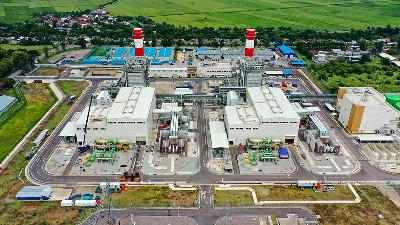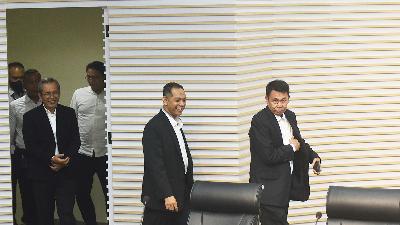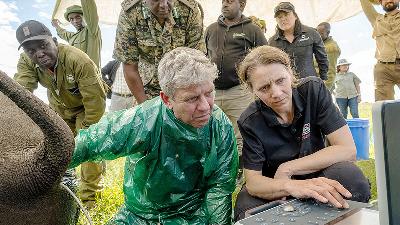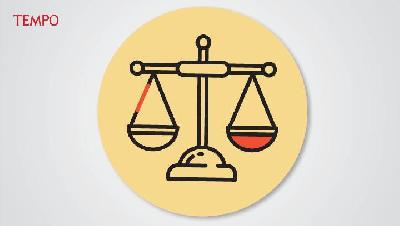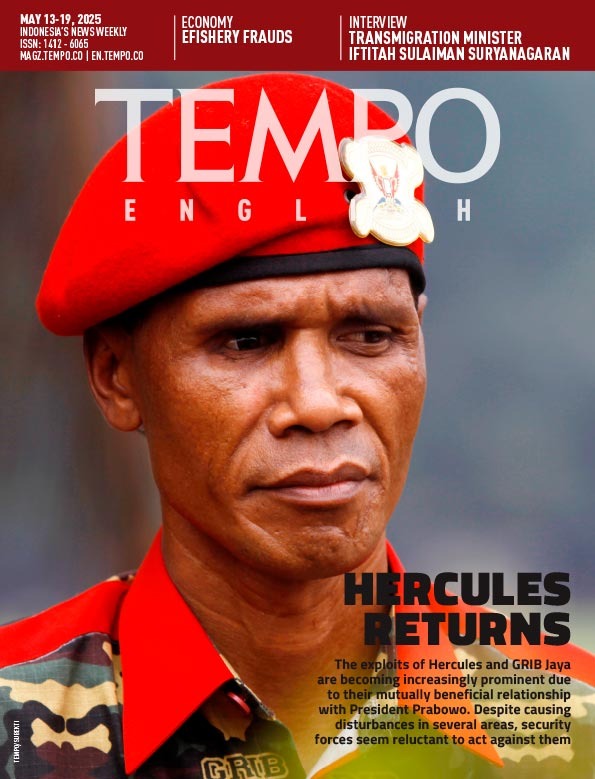The Protracted Search for Firli Bahuri’s Replacement at KPK
Monday, February 19, 2024
Jokowi has yet to propose a replacement for Firli Bahuri as KPK Chair. This is proof that the government does not care about wiping out corruption.
arsip tempo : 174705271677.
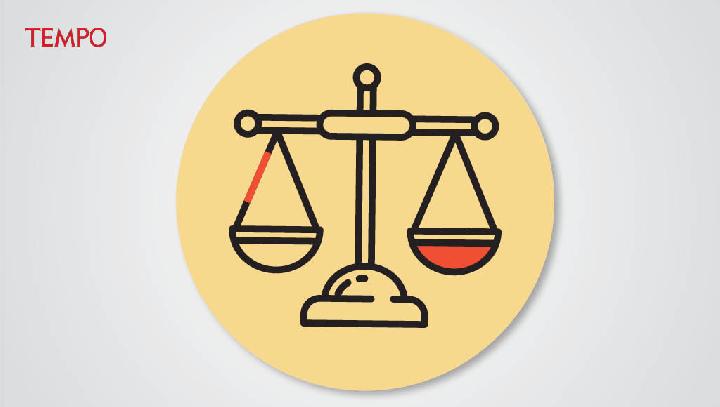
ALMOST two months have passed, but President Joko Widodo is still allowing the office chair of the Corruption Eradication Commission (KPK) leader to remain empty, gathering dust. Jokowi has yet to propose anyone to replace Firli Bahuri, who was fired after becoming an extortion suspect.
The KPK Law clearly states that if there is a vacancy, the position of leader of the organization must immediately be filled. The President should have hastened to send the names of prospective replacements for Firli to the House of Representatives (DPR). But Jokowi seems to have preferred to pay more attention to the victory of his son, Gibran Rakabuming Raka, as vice-presidential candidate running alongside Prabowo Subianto.
The government claims it is still in the process of ‘confirming’ the four candidates who were put forward but not chosen in the most recent KPK leadership selection. But why is it taking so long to confirm them? And what needs to be confirmed? It would be very dangerous if the government just wanted to ensure that the next KPK head can be firmly under the control of the president as Firli Bahuri was.
In Jokowi’s two administrations, the KPK leader has been more like the president’s puppet than an independent figure firmly upholding the principle of anti-corruption. The anti-graft agency lost its independence and became more prone to government intervention after the President and the coalition of parties supporting the government in the DPR revised the KPK Law at the end of 2019. Since then, the selection of the KPK leadership by the DPR has more resembled a soap opera than the selection of an individual serious about eradicating corruption.
As well as this, the government has allowed the KPK—which is now under the executive branch—to be increasingly overwhelmed by its own problems. The KPK Supervisory Board recently found 90 KPK officials guilty of demanding illegal levies in jails. And 90 percent of KPK detainees have been victims of extortion by officials undermining their own organization.
The KPK leadership is increasingly free to enter the political arena by being selective in the way it deals with alleged corruption. Under Firli’s leadership, the KPK halted investigations into 36 alleged corruption cases—something that never happened when the KPK still had teeth. And there has been a rise in the buying and selling of cases. One example of this was KPK investigator Adj. Comr. Stepanus Robin Pattuju, who was jailed for 11 years in 2022 for taking bribes to manipulate five corruption cases.
The decline in the KPK’s performance is in line with Indonesia’s worsening score in the corruption perceptions index. According to a survey carried out by Transparency International of 180 nations, Indonesia’s corruption perceptions ranking in 2023 fell to 115 from 110 the previous year. If there are no improvements, it is possible that Transparency International will change the color of Indonesia on its map to blood red to show how this nation is increasingly drowning in a sea of corruption.
Ironically, while the performance of the KPK is worsening, the level of taxpayer funding used to cover the organization’s costs continues to rise. In 2023, the government and the DPR allocated Rp1.277 trillion for the KPK. But the KPK asked for an additional Rp432 billion, making the total Rp1.709 trillion—compared with Rp1.304 trillion the previous year.
As well as consuming more funds, the KPK is increasingly rotten inside and out. It seems that it is time the people demanded dissolution of the anti-graft body that they used to hold in such high regard.




